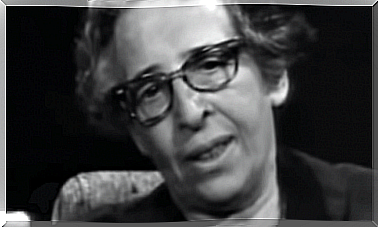Treating Insomnia With Cognitive Behavioral Therapy

In this article, we’ll tell you how to treat insomnia with cognitive behavioral therapy. You may feel like you’ve already tried everything to treat your insomnia, but nothing has helped.
Mild insomnia can be very frustrating and more severe cases of insomnia can be very debilitating. If you’re looking for an effective solution, you might want to know that psychological treatment can be much more effective than popular insomnia remedies.
Insomnia is a common problem that is often mishandled. Statistically, approximately 6% of the adult population suffers from insomnia as defined by the Diagnostic and Statistical Manual of Mental Disorders (DSM-5). In addition, 12% of people who suffer from insomnia indicate that it affects their daily activities.
What is the definition of insomnia?
Insomnia is a sleep disorder. Someone who suffers from insomnia has trouble falling asleep or staying asleep. He may also wake up very early every morning. This disorder can make it difficult to function normally and has significant negative health consequences.
In addition, insomnia can cause a variety of psychological and medical conditions. It is therefore important to treat insomnia properly. The DSM-5 states that mental health professionals should diagnose insomnia when a person cannot fall asleep or stay asleep.
To be diagnosed with insomnia, your insomnia must affect your daytime activities. In addition , there must not be any other medical or psychiatric condition that can better explain the problem.
To diagnose insomnia, a patient must take more than 30 minutes to fall asleep or wake up several times during the night. If that happens at least three nights a week for a period of at least six months, we can speak of insomnia.

Treating insomnia with cognitive behavioral therapy
Multiple studies indicate that cognitive behavioral therapy can be very effective in treating insomnia. This form of therapy can produce very long lasting results if followed up properly.
Doctors prescribe different types of prescriptions to combat insomnia. These include benzodiazepines, non-benzodiazepine hypnotics, antidepressants and antihistamines such as diphenhydramine and doxylamine.
However, there is evidence that patients respond better to non-drug treatments for insomnia. These treatments often also have a longer-lasting effect. In this case, cognitive behavioral therapy has proven to be a very effective and promising treatment.
This form of therapy is unique in that it focuses on sleep. The therapy lasts relatively short compared to other types of psychotherapy and the patient plays a very active role in his treatment. The fundamental goal of cognitive behavioral therapy for insomnia is to help the patient sleep better and function better during the day.
To achieve these goals, the psychologist offers the patient direct guidance. However, it is the patient’s own responsibility to follow the recommendations of his psychologist at home.
How do psychologists treat insomnia with cognitive behavioral therapy?
Cognitive behavioral therapy focuses on the behavioral and cognitive processes that cause insomnia. The goal is to reverse these processes. The treatment also has a time limit. Typically, a patient needs six to eight 50-minute sessions with their psychologist.
During the first session, the psychologist explains the treatment to the patient and also talks about what is known about sleep and circadian rhythms. During this session, the patient also tells the psychologist his goals.
The next three sessions are devoted to treating the patient’s sleep problems, paying attention to his symptoms, safety behavior and daytime energy.

During the fifth, sixth and seventh sessions, issues such as relaxation, sleep hygiene, day and night routines are addressed and so on. Finally, the eighth session focuses on preventing relapses.
When you start cognitive behavioral therapy with a new psychologist to treat your insomnia, the psychologist will evaluate you first. He will review your medical history, as well as the history of your insomnia and its severity.
This first session therefore contains several components that are crucial for your treatment. The psychologist will then give you a summary and classification of the treatment. He will also talk to you about your specific case and explain the basic sleeping patterns and processes.
Finally
The last thing you do during your first session with the psychologist is to identify the behavioral and cognitive processes you need to address to treat your insomnia. When you’re done with your treatment, review all the techniques and tools you’ve learned to overcome your insomnia and prevent relapse.









